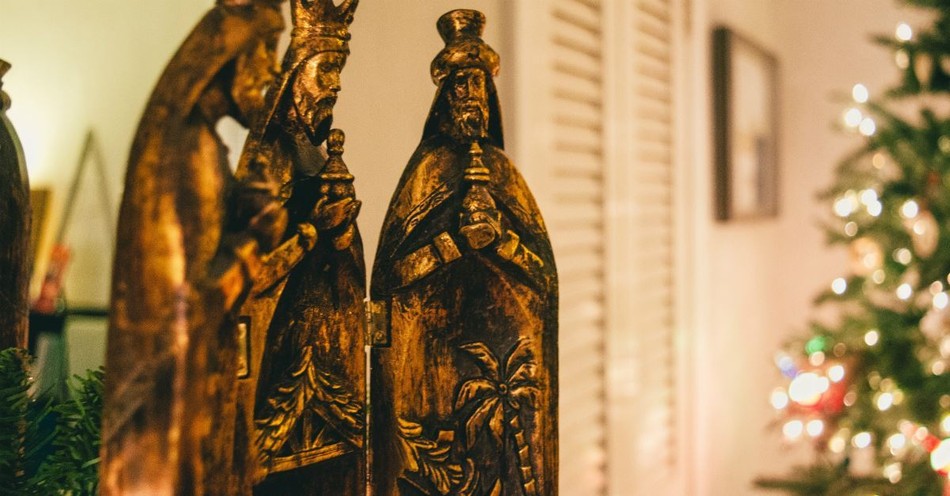Three Kings Day, also known as Epiphany or Dia de los Reyes in Spanish, is a vibrant Christian holiday celebrated by millions worldwide. Observed at the end of the Christmas season, this holiday holds deep historical and religious significance. In this article, we will delve into Three Kings Day's origins, traditions, and meaning and explore how it is celebrated in various countries today.
Three Kings Day is observed annually on the 6th of January.
The History of Three Kings Day
The history of Three Kings Day can be traced back to the Christian tradition, specifically the nativity story in the Bible. According to Christian beliefs, this day commemorates the arrival of the Magi, also known as the Wise Men or the Three Kings, at the birthplace of Jesus in Bethlehem. These three wise men, named Melchior, Caspar, and Balthazar, are said to have followed a star known as the Star of Bethlehem, to find the newborn Messiah.
The Gospel of Matthew tells the story of how the Wise Men brought three symbolic gifts to present to the infant Jesus: gold, frankincense, and myrrh. Gold symbolized Jesus' kingship, frankincense represented his divinity, and myrrh foreshadowed his suffering and death. This event is considered a manifestation of Jesus to the Gentiles, signifying the universality of Christ's message.
The Visit of the Wise Men
After Jesus was born in Bethlehem in Judea, during the time of King Herod, Magi from the east came to Jerusalem and asked, "Where is the one who has been born king of the Jews? We saw his star when it rose and have come to worship him." When King Herod heard this he was disturbed, and all Jerusalem with him. When he had called together all the people's chief priests and teachers of the law, he asked them where the Messiah was to be born. "In Bethlehem in Judea," they replied, "for this is what the prophet has written: 'But you, Bethlehem, in the land of Judah, are by no means least among the rulers of Judah; for out of you will come a ruler who will shepherd my people Israel.'" Then Herod called the Magi secretly and found out from them the exact time the star had appeared. He sent them to Bethlehem and said, "Go and search carefully for the child. As soon as you find him, report to me, so that I too may go and worship him."
After they had heard the king, they went on their way, and the star they had seen when it rose went ahead of them until it stopped over the place where the child was. When they saw the star, they were overjoyed. On coming to the house, they saw the child with his mother Mary, and they bowed down and worshiped him. Then they opened their treasures and presented him with gifts of gold, frankincense and myrrh. And having been warned in a dream not to go back to Herod, they returned to their country by another route. (Matthew 2:1-12)
The Significance of Three Kings Day
Three Kings Day is significant for several reasons. Firstly, it marks the end of the Christmas season in many cultures, as it falls twelve days after Christmas, in accordance with the Twelve Days of Christmas carol. Secondly, it serves as a reminder of the universal nature of Jesus' message and the importance of recognizing him as both divine and earthly. Lastly, it highlights the act of giving and generosity, as the Wise Men brought gifts to honor the newborn Jesus.
Religious Significance of Three Kings Day:
The Arrival of the Magi: At its core, Three Kings Day commemorates the biblical story of the arrival of the Magi (Wise Men or Three Kings) at the birthplace of Jesus in Bethlehem. According to Christian tradition, the Magi followed the Star of Bethlehem to find the newborn Messiah and presented him with symbolic gifts of gold, frankincense, and myrrh.
Epiphany: "Epiphany" means a divine revelation or manifestation. In the Christian context, it represents the revelation of Jesus Christ to the Gentiles, emphasizing the universal nature of Jesus' message of salvation.
The End of the Christmas Season:
Three Kings Day marks the conclusion of the Christmas season in many cultures. It falls twelve days after Christmas, signifying the end of the Twelve Days of Christmas. In some Christian traditions, it also marks the day when the holiday season decorations are taken down.
Three Kings Day Traditions
Rosca de Reyes: A central tradition of Three Kings Day in many Latin American countries is sharing the "Rosca de Reyes," a sweet bread shaped like a ring or crown. Baked inside the bread are small figurines representing the baby Jesus, and whoever finds a figurine in their slice is responsible for hosting a feast on February 2nd, known as Candlemas or Dia de la Candelaria.
Parades and Processions: In some countries, especially Latin America and Spain, colorful parades and processions occur. Participants dress up as the Three Kings and travel through towns, distributing sweets and small gifts to children along the way.
Gift-Giving: Like the Christmas gift-giving tradition, many families exchange presents on Three Kings Day. In some cultures, children leave their shoes out on the night of January 5th, hoping that the Three Kings will give them gifts.
Nativity Scenes: Nativity scenes are a common decoration during the Christmas season, and they remain on display until Three Kings Day. This is when the figurines of the Wise Men are finally placed at the scene, completing the nativity story.
Three Kings Day Around the World in 2026
While Three Kings Day has its roots in the Christian tradition, it is celebrated by people of various backgrounds and faiths in different parts of the world. Here's a glimpse of how this holiday is observed in some regions in 2026:
United States: In areas with a significant Hispanic population, such as parts of Florida, Texas, and California, Three Kings Day is celebrated with parades, community events, and traditional foods.
Mexico: In Mexico, Three Kings Day is a major celebration. Families attend Mass, share Rosca de Reyes and exchange gifts. Parades featuring the Three Kings are also common in Mexican towns and cities.
Spain: Spain hosts elaborate processions on the evening of January 5th, known as the "Cabalgata de Reyes." The Three Kings arrive on horseback or in elaborate floats, tossing sweets and small gifts to the crowds. Children wake up on January 6th to find gifts left by the Wise Men.
Puerto Rico: Three Kings Day is a public holiday in Puerto Rico, with festivities lasting for several days. Children leave grass or hay under their beds for the camels of the Wise Men, along with a wish list of gifts they hope to receive.
Conclusion
With its rich history and meaningful traditions, Three Kings Day is a cherished holiday that transcends borders and Christian denominations. It serves as a reminder of the story of the Magi and the symbolism of their gifts, as well as an opportunity for families and communities to come together in celebration. As we approach Three Kings Day in 2026, let us embrace the spirit of generosity, unity, and the recognition of the divine in our lives, just as the Three Kings did over two thousand years ago.
Photo credit: Jonathan Meyer
Christianity.com's editorial staff is a team of writers with a background in the Christian faith and writing experience. We work to create relevant, inspiring content for our audience and update timely articles as necessary.





